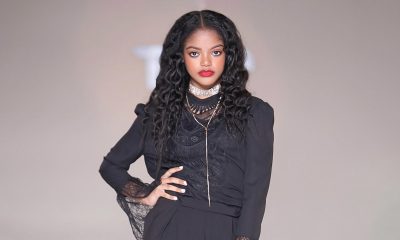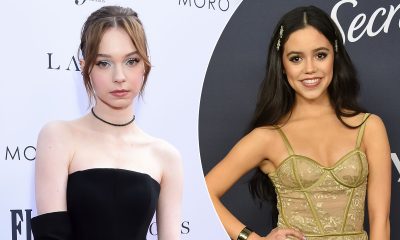Actors
Alicia Hannah-Kim Connecting with Korean Roots and Ethnicity
“In America, Asian actors are often strangled by ethnic restrictions placed on us,” Alicia Hannah-Kim wrote.
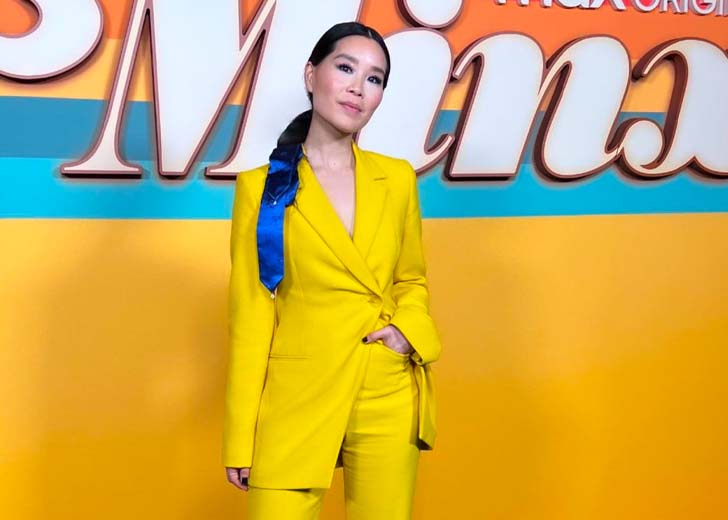
Alicia Hannah-Kim is an Australian actress. She made her US television debut in the Starz series Crash.
She is also known for her roles in Grey’s Anatomy, Two and a Half Men, Hot in Cleveland, Supah Ninjas, Chasing Life, and Hawaii Five-O.
Kim reprised her role as legendary feminist novelist Wendy Mah in HBO Max’s Minx, and she joined the cast of Netflix’s international sensation, Cobra Kai, in season five as the strict sensei Kim Da-Eun.
The actress was born in Australia and moved to America to build a career, but her roots go back to the East. Here’s what she says about her ethnicity and roots.
Alicia Hannah-Kim’s parents are from Korea
Although both Kim and her brother were born and brought up in Australia, both of her parents are Korean, as per her IMBD bio.
They moved to Australia during the late 70s before the actress and her brother was born. So despite being Australian by nationality, Kim’s ethnicity is Korean.
Writing an article for the Salon, she shared, “My parents migrated to Sydney in the late ’70s, had me and my brother in the ’80s, and raised us in a one-sided multilingual household.”
There is no information about her parents and brother as she likes to keep their personal data out of media and the internet.
She learned Korean during the Pandemic
In the article for Salon, she further opened up about how she learned to speak the family language fluently only during the Pandemic.
During the Pandemic, while everybody was confined to the walls of their home and finding new hobbies, the actress learned to speak the language fluently, which she easily understood.
“My parents are both fluent in English and Korean and whilst my brother and I understood Korean, we both always spoke English.”
She also shared that she never really found it necessary to learn the language as she only needed the English language to communicate and find work.
“I was born in Australia and moved to America. English was the only language I needed to work and live,” the actress mentioned.
Alicia Hannah-Kim talks about racism
Kim said that racism was something that did not impact her early childhood. She expressed that although she had a few incidents, she was a typical Australian kid and liked to express herself that way.
“Apart from a handful of Korean families with whom we socialized, my life was dominated by Australian culture – white Australian culture. Racism, I felt, was something that didn’t touch my life,” she wrote in the article.
The actress shared her few incidents, like, a kid pulling his eyes back and singing the ching chong china song, and a white woman asked her to stay away from her kid. But she continued to mention that it wasn’t her daily experience.
But then, Cobra Kai’s actress felt the presence of racism when she started working in the movie industry. She also talked about her article in a YouTube video.
She wrote, “It was only once I became an actor that my identity really became problematic for casting. I was employed in Australia more than once to play the victim who spoke broken English and barely contributed to a scene beyond nodding or crying.”
Kim openly talked about how her fluent English accent didn’t match her looks and was not even allowed to audition for Asian roles.
She opened up about internalized racism in Hollywood and how it makes one believe that the structure cannot change and that it has stereotyped Asian as minority characters.
“In America, Asian actors are often strangled by ethnic restrictions placed on us. So many casting notices indicate that one must match the role, ethnically speaking, in order to audition.”
“In drama school I was Lady Macbeth but in the industry I was Lotus the Massage Therapist,” the actress shared.
And she mentioned that representations matter to those from different ethnicities in Hollywood. She realized it by watching K-dramas in 2020.
She wrote, “Representation matters. You hear it all the time from all the underrepresented groups pushing our culture toward inclusivity.”
Keep reading GB Issue for more exciting stories!

Actors
Look at Néstor Carbonell’s Remarkable Net Worth and Illustrious Career
Néstor Carbonell first gained prominence for his role in the NBC sitcom ‘Suddenly Susan.’
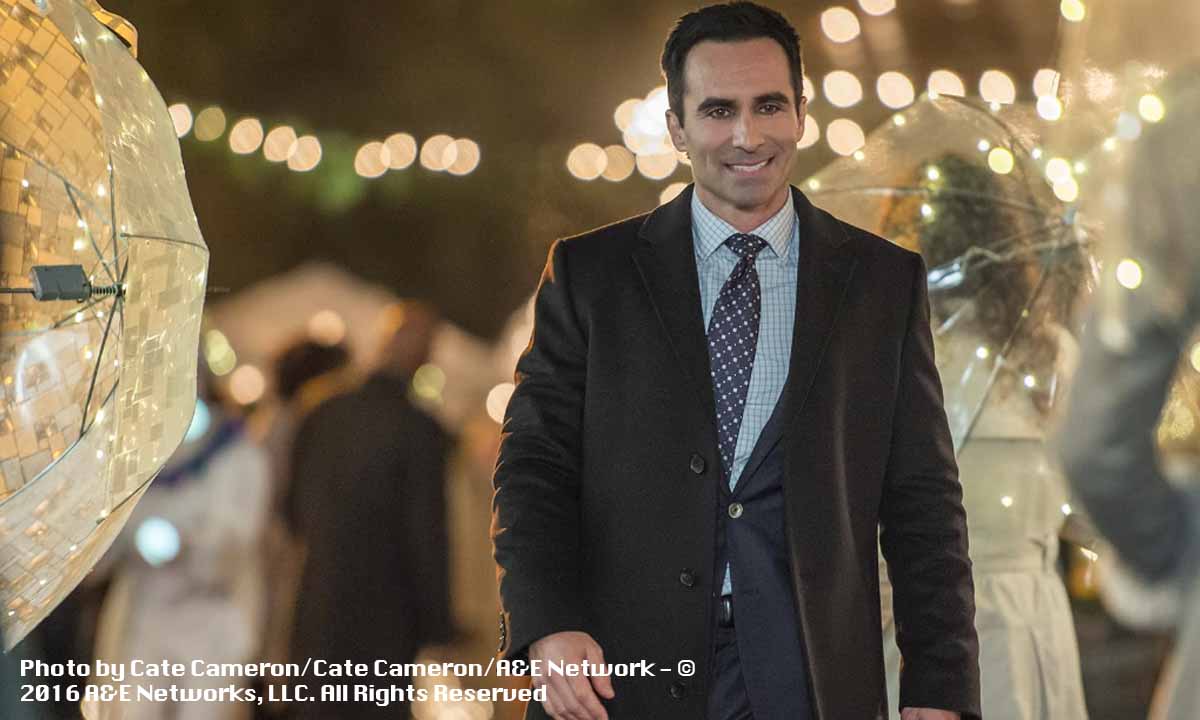
Néstor Carbonell is an American actor, director, and screenwriter. He gained prominence for his role as Luis Rivera in the NBC sitcom Suddenly Susan.
He is known for playing Richard Alpert in the ABC drama series Lost, Sheriff Alex Romero in the A&E drama series Bates Motel, and Yanko Flores in the Apple TV+ drama series The Morning Show.
He also starred as Mayor Anthony Garcia in Christopher Nolan’s superhero films The Dark Knight and The Dark Knight Rises. This article discusses his net worth and career in detail.
Néstor Carbonell net worth and early career
Carbonell has amassed an estimated net worth of $3 million throughout his successful acting career spanning nearly three decades. This net worth results from his work across film, television, voice acting, and other endeavors in the entertainment industry.
In his early days trying to break into Hollywood, he faced an uphill battle convincing casting directors and producers that he could play roles outside the typical Hispanic stereotypes.
His first on-screen role was a guest appearance as Alberto in a 1989 episode of the soap opera As the World Turns. He followed this up with minor guest spots on shows like Law & Order, Melrose Place, Reasonable Doubts, and other sitcoms through the early 1990s.
In 1995, Carbonell had a slight but memorable turn on stage, starring in Stephen Sondheim’s play Getting Away with Murder. That same year, he marked his first recurring television role playing Gianni on the short-lived WB sitcom Muscle.

Néstor Carbonell in ‘The Morning Show’ (Source: The Nerds of Color)
The following year, she landed his breakthrough part as Luis Rivera on the sitcom Suddenly Susan. Appearing in 93 episodes across the show’s four-season run from 1996 to 2000, this marked his first major recurring role and significant exposure to a broad audience.
As the 1990s transitioned to the 2000s, he continued building his resume and gaining more prominent roles. In 2000, he wrote and starred in the comedy film Attention Shoppers.
Throughout the rest of the decade, he racked up recurring parts on shows like The Tick, Kim Possible, Century City, Cold Case, and more while doing guest appearances on hit series like Scrubs, House, and Monk. He also did voice work for animated shows.
Carbonell’s prolific output and profile continued rising in the 2000s, culminating in a supporting role as assassin Pasquale Acosta in the 2006 film Smokin’ Aces.
Néstor Carbonell’s latter half of his career
In the late 2000s, Carbonell landed his breakthrough role as the mysterious and ageless Richard Alpert on ABC’s hit drama series Lost.
While still on Lost, he landed the role of Mayor Anthony Garcia in Christopher Nolan’s 2008 film The Dark Knight, his wife Shannon Kenny having previously voiced a character in the Batman universe.

Néstor Carbonell in ‘The Dark Knight Rises’ (Source: IMDb)
He reprised this mayoral role in 2012’s The Dark Knight Rises. His other notable work in this era included recurring roles on the Psych, Ringer, Wilfred, and State of Affairs series and voice roles in animated shows like The Penguins of Madagascar.
From 2013 to 2017, he starred as Sheriff Alex Romero on A&E’s Bates Motel, starting as a recurring player before being promoted to the main cast in Season 2. He also directed three episodes of the series.
Carbonell has recently recurred as Yanko Flores on Apple TV+’s The Morning Show since 2019 and lent his voice to roles on shows like Elena of Avalor and Big Hero 6: The Series.
Néstor Carbonell got widespread fame in ‘Suddenly Susan’
Carbonell’s big break came in 1996 when he was cast in the recurring role of Luis Rivera on the NBC sitcom Suddenly Susan.
The show starred Brooke Shields as the titular Susan Keane, a writer at a San Francisco magazine who decides to embrace life as a single woman after leaving her fiancé at the altar.
Carbonell played Luis, one of Susan’s coworkers and friends at the fictional magazine The Gate. Luis was a charming and handsome photographer who often served as Susan’s love interest and confidant as she navigated her newfound independence.
Over the show’s four-season run from 1996 to 2000, Carbonell appeared in 93 episodes, making him a standout cast member alongside Shields.
Carbonell’s funny and appealing portrayal of Luis Rivera made the character incredibly popular with viewers. His natural chemistry with Shields added an engaging romantic tension that kept audiences invested in their potential relationship.
Carbonell’s performance as the charismatic and caring Luis allowed him to showcase his talent for comedy and his appeal as a leading man.
While Carbonell had done small guest spots on various TV shows before Suddenly Susan, this was his first major recurring role and significant exposure to a broad television audience. The sitcom marked Carbonell’s breakthrough into more prominent parts and greater fame.
Néstor Carbonell was recently cast in ‘Motherland’
Carbonell has been tapped for a starring role in the upcoming indie film Motherland, which has entered production in New York. He joins a cast that includes Miriam Silverman, Emily Arancio, and Holland Taylor.
In Motherland, Silverman plays Cora, who forms a close bond with her estranged daughter Zinnia (Arancio) in an alternate present society where parents are forbidden from knowing or raising their children. Carbonell’s role in the film has yet to be explicitly revealed.
This casting continues his prolific run of work across film and television. He currently stars as Yanko Flores on Apple TV+’s acclaimed drama series The Morning Show, which is nearing the end of its third season.
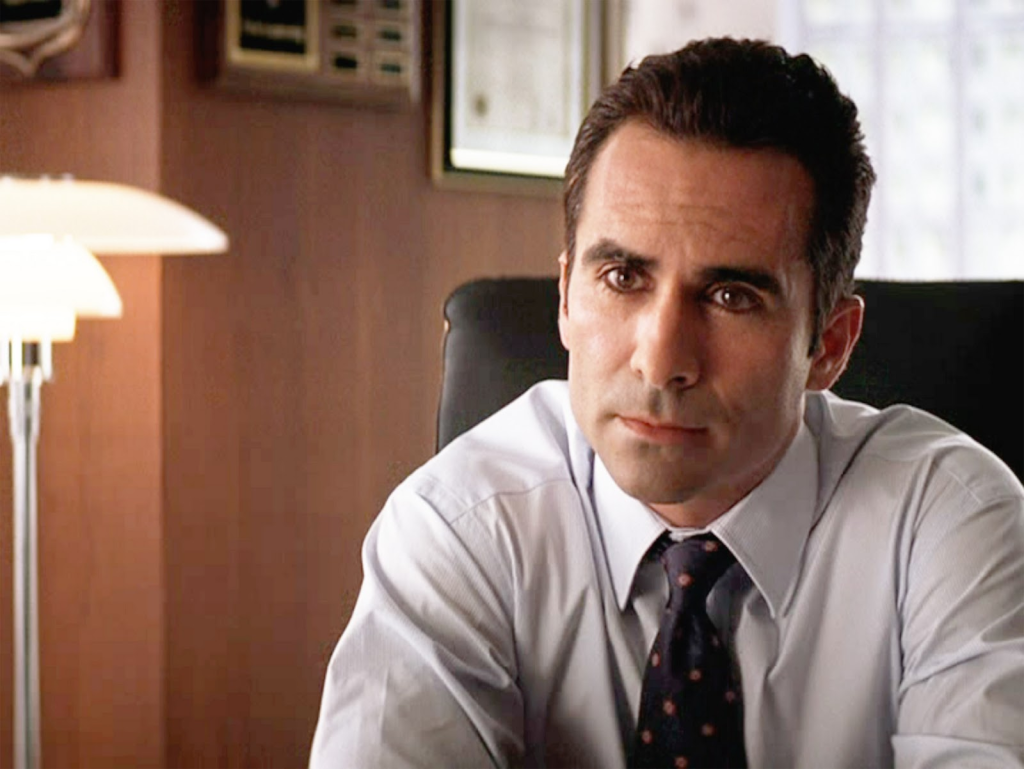
Néstor Carbonell is now set to star in ‘Motherhood’ (Source: Collider)
Looking ahead, Carbonell has even more high-profile projects on the horizon. He will be featured in the upcoming FX/Hulu adaptation of the classic novel Shōgun, which is set to premiere in February 2024.
Carbonell’s participation in Motherland marks another intriguing indie film added to his resume. Motherland comes from MPI Original Films, a Moving Picture Institute production company subsidiary.
It is being directed by Evan Matthews from a script by Nicole Swinford. The film has begun shooting in New York under an interim agreement, with Summer Crockett Moore, Tony Glazer, Lana Link, and Rob Pfaltzgraff producing alongside executive producer Nick Reid.
For Carbonell, the casting in Motherland continues to add to his already impressive body of work spanning indie and big-budget films and acclaimed television series.
Actors
Cosmo Jarvis’ Net Worth Is a Thriving Reflection of His Success
Cosmo Jarvis is a multitalented individual with successful careers in both film and music industry.

rowan university new jersey brandon aiyuk jersey custom football jerseys Florida state seminars jerseys asu jersey penn state jersey penn state jersey detroit lions jersey,green bay packers jersey,eagles kelly green jersey,jersey san francisco 49ers kansas state football uniforms penn state football jersey custom ohio state jersey rowan university new jersey aiyuk jersey ohio state jersey Florida state seminars jerseys gbissue.com/tag/cosmo-jarvis/” data-type=”link” data-id=”https://gbissue.com/tag/cosmo-jarvis/” target=”_blank” rel=”noreferrer noopener”>Cosmo Jarvis is a multitalented British artist known for his work as an actor, musician, and filmmaker.
He has delivered captivating performances in critically acclaimed films such as Lady Macbeth (2016), Calm with Horses (2019), and the recent adaptation of Persuasion (2022).
This article delves into Jarvis’s net worth, career highlights, and upcoming projects, providing insights into this rising star’s financial success and artistic journey.
Cosmo Jarvis’s net worth and film career
Jarvis has amassed a net worth estimated at around $5 million. His relentless pursuit of artistic excellence has marked his journey to financial success. His film career also has been a significant contributor to his net worth.
In 2012, he announced his foray into filmmaking with his debut feature film, The Naughty Room, which premiered on BBC Four. This early success paved the way for his subsequent roles in critically acclaimed films such as Lady Macbeth in 2015.
His portrayal of Arm in the independent film Calm with Horses in 2019 earned him nominations for Best Actor at the British Independent Film Awards 2020 and the London Film Critics Circle.

Cosmo Jarvis in ‘Peaky Blinders’ (Source: Facebook)
Similarly, in 2020, he appeared in the fifth season of Peaky Blinders, portraying Barney’s character. Following this, he took on diverse roles in films such as Nocturnal, Funny Face, The Evening Hour, and Raised by Wolves.
Jarvis’s net worth and career trajectory have continued to soar with his recent and upcoming projects. In 2021, he was announced as the lead opposite Dakota Johnson in Netflix’s adaptation of Jane Austen’s Persuasion.
Additionally, he landed a leading role alongside Hiroyuki Sanada in FX’s TV miniseries Shōgun, the second TV adaptation of James Clavell’s best-selling novel of the same name, set to release in 2024.
These high-profile projects showcase Jarvis’s acting prowess and contribute to his growing financial success.
Cosmo Jarvis also had a career in music
Jarvis’s artistic talents extend far beyond acting. At 16, he boldly decided to quit school and dedicate himself entirely to his creative pursuits.
In 2009, he wrote and produced his debut album, Humasyouhitch/Sonofabitch, an 18-song set released by the British indie label Wall of Sound.
Building on the success of his debut album, Jarvis confirmed the title of his second album, Is the World Strange or Am I Strange?, on his official Facebook page.
The first single released from this album was ‘Gay Pirates,’ which hit the airwaves on January 23, 2011. He directed the music video for ‘Gay Pirates,’ which garnered attention as Record of the Day and AOL’s Spinner video of the day.

Cosmo Jarvis also has a successful music career (Source: The Australian)
Jarvis’s musical journey continued with the release of his third studio album, Think Bigger. He embarked on a UK tour in late 2012, supporting the band Mad Dog Mcrea, for whom he penned the song ‘Waiting on the Hill.’
His music also found its way into the 2013 comedy Hawk(e): The Movie, which featured several songs.
2020, he revisited his musical roots by re-releasing his 2012 album Think Bigger as the Think Bigger (2020 Deluxe Edition). This reissue aimed to give the album a more comprehensive global release, as the original 2012 version had yet to be widely available.
The deluxe edition featured all 11 original recordings remastered for 2020 and nine bonus tracks from the same writing period. These bonus tracks included five never-before-heard songs and four acoustic live “bedroom” versions of key tracks from Think Bigger.
Cosmo Jarvis starred alongside Dakota Johnson in ‘Persuation’
In the 2022 Netflix adaptation of Jane Austen’s classic novel Persuasion, Jarvis showcased his acting by starring alongside Dakota Johnson.
He took on the role of Captain Frederick Wentworth, a young and ambitious naval officer who became engaged to Anne Elliot (portrayed by Johnson) at 19.
However, due to Wentworth’s low social status and lack of wealth, Anne’s family and friends persuade her to break off the engagement, believing him to be an unsuitable partner.
Jarvis’s portrayal of Wentworth captures the character’s confidence, ambition, and the heartbreak of rejection by the woman he loves. As the story unfolds seven years after their broken engagement, Jarvis’s chemistry with Johnson shines through.
The two actors effortlessly conveyed the lingering feelings and unresolved emotions between their characters, even as they crossed paths in Bath and navigated the complexities of their past relationship.
Jarvis’s talent is further showcased in pivotal moments where Wentworth and Anne renew their acquaintance and eventually reconcile.
The actor’s ability to convey the rawness of Wentworth’s emotions, his vulnerability, and his unwavering love for Anne made their eventual reunion all the more powerful.
Cosmo Jarvis’ upcoming TV series ‘Shōgun’
Jarvis is set to embark on a captivating journey in the upcoming historical drama television limited series Shōgun, based on James Clavell’s 1975 novel of the same name.
The series, a reimagining of the 1980 television miniseries, promises to transport viewers to a world of cultural collision, ambition, and intrigue, with Jarvis playing a pivotal role in this epic tale.
Jarvis takes on the role of Pilot Major John Blackthorne, a risk-taking English sailor who finds himself shipwrecked in Japan, a land whose unfamiliar culture will ultimately redefine him.
Blackthorne’s character is loosely based on the historical English navigator William Adams, who rose to become a samurai under the powerful daimyo and later the first shogun, Tokugawa Ieyasu, the founder of the Tokugawa Shogunate of Japan.

Cosmo Jarvis as John Blackthorne (Source: Tech Advisor)
Shōgun promises to be a visually stunning and historically rich production, bringing to life the world of 16th-century Japan with accuracy and authenticity.
Jarvis’s portrayal of Blackthorne, a foreigner navigating Japan’s complex cultural and political landscape, will add depth and intrigue to the story as his character adapts to his new surroundings and forges unlikely alliances.
The series, which will premiere its first two episodes on February 27, 2024, on Hulu and FX, with new episodes released weekly after that, has already generated significant buzz among fans of historical dramas and period pieces.
Jarvis’s involvement in the project further solidifies his reputation as a versatile and sought-after actor, capable of seamlessly transitioning between genres and periods.
Actors
Nicolette Scorsese Today — Where Is the Actress Now? Is She Dead or Alive?
Nicolette Scorsese was famous for her relationship with Sean Penn.
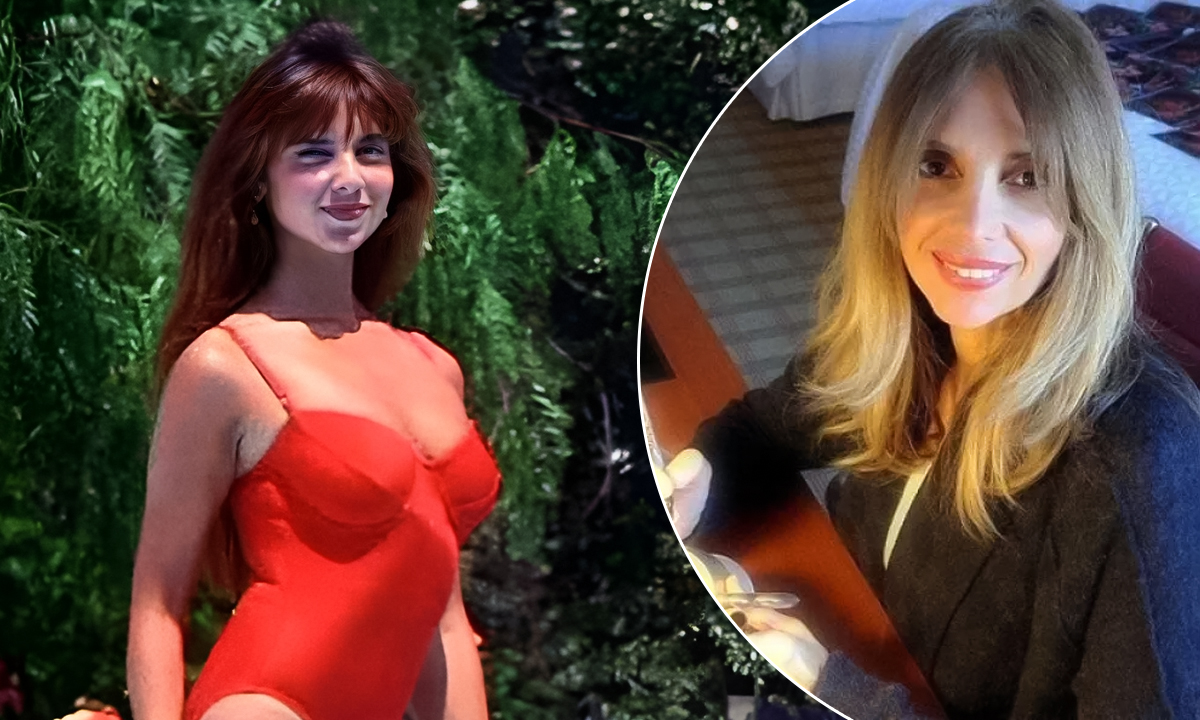
Nicolette Scorsese, an American actress renowned for her roles in films like Lampoon’s Christmas Vacation and Boxing Helena, had harbored dreams of becoming an actress and model since her early years.
Raised with the support of her parents, she ventured into the entertainment industry, initially starting with television commercials and ads before transitioning into film roles. Notably, her connection with Sean Penn added to her recognition.
That said, she is also rumored to be related to Martin Scorsese because of their shared last name, but are they related? Similarly, where is the actress now? Learn about her Wikipedia, bio, age, parents, and more!
Where is Nicolette Scorsese now? Is she dead or alive?
The famous 90s actress is alive but maintains a very low profile and doesn’t share much of her life in the media. According to online comments, she is currently teaching eighth graders in a local school.
Born on January 6, 1954, in the USA, she is 69 years old as of today and will turn 70 soon. Nicolette spent her early years in California. Information about her siblings and parents remains unknown, as she never mentioned any of her family members in the media.
There is no information about her father and mother, but some pages suggest that they were supportive of her career. She achieved fame during the late 1980s and early 1990s, primarily for her notable roles in Hollywood films.
Despite her career being relatively short-lived, concluding in 2000, the actress left an enduring impact, and even today, people fondly recall her contributions to the entertainment industry during the vibrant era of the 1990s.
Apart from her acting prowess, Nicolette gained attention for her hourglass figure showcased in Boxing Helena. She embarked on her modeling and acting career after graduating from college.
Nicolette Scorsese started her career in 1985 with a TV series
As a model, Nicolette participated in various shoots for popular brands in the ’90s. Her acting journey began with the TV series The A-Team in 1985, followed by roles in shows like Charles in Charge (1987) and NYPD Blue (1995-2000).
Her breakthrough came with the film National Lampoon’s Christmas Vacation, one of the famous and classic Christmas movies, where her portrayal of Mary became iconic. Despite a decade-long presence in Hollywood, Nicolette gradually withdrew from the industry after the year 2000.
Her other works include The Ultimate Lie (1996), Lone Greasers (1998), L.A. Law (1986-1994 and 2002), and ER (1994-2009).
Is Nicolette Scorsese related to Martin Scorsese?
A common misconception surrounding the actress is that she is related to the iconic filmmaker Martin Scorsese. One of the main reasons behind it is that both of them share the same last name. Some have even misconceived that Nicolette is Martin’s daughter.
However, despite both of them being in the entertainment business, the only similarity between the famous Hollywood director and the 90’s cult classic actress is their shared surname. Nicolette and Martin are not related by blood or any other family relationships.
What is Nicolette Scorsese‘s net worth?
Despite a relatively short career, Nicolette reportedly boasts a net worth of $1 million, accrued through her endeavors as both a model and actress. Though not as extravagant as some Hollywood stars, her financial success is noteworthy considering the brevity of her career.
Nicolette Scorsese had a relationship with Sean Penn
The charming actress and model had relationships with several Hollywood figures, including a short-lived relationship in 1988 with the American DJ, songwriter, and music producer Jellybean Benitez.
Her other romantic involvement included Antonio Sabato Jr. Following her split with Benitez, she dated the Italian-American model and actor for a brief period. That said, her infamous relationship was with actor Sean Penn.
In 1990, she entered a relationship with the Academy Award-winning actor and filmmaker Penn, which lasted nearly a year. Post-Penn, she dated the English rock musician Billy Duffy, who is also the rumored father of her supposed daughter, Shiloh Duffy.
However, none of her relationships ended in marriage. Since the actor has been living a low-profile life since 2000, there is not much knowledge about who she dated after her split with Billy, who she is dating now, or where she is now. She doesn’t have a Wikipedia page either.


